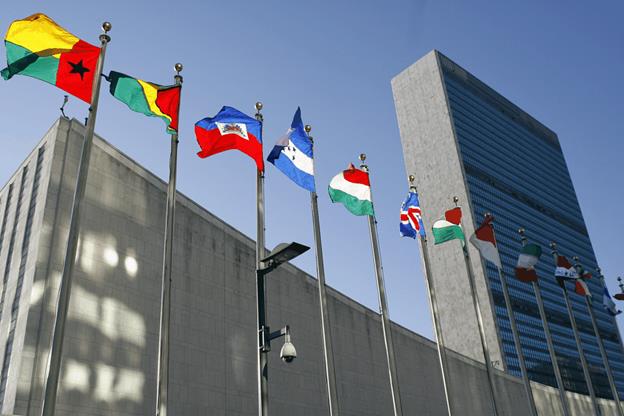
The applicability of the principle of self-determination to the specific case of Jammu and Kashmir has been recognized by the United Nations
The Concept of Self-Determination and the Issue of Kashmir - 2
By Dr Ghulam Nabi Fai
Chairman
World Forum for Peace & Justice
Washington, DC

“The real sovereigns of the State (of Kashmir) are the people. The ruler is a servant of the people.” July 29, 1947 (Mahatma Gandhi).
The principle of self-determination in modern times can be defined as the right of peoples to determine their own political status and pursue their own economic, social and cultural policies. Self-determination in its literal meaning or at a terminological level implies the right [of a people] to express itself to organize in whatever way it wants.
Dr Karen Parker defined the concept from a legal point of view, “The right to self-determination is indisputably a norm of jus cogens. Jus cogens norms are the highest rules of international law and must be strictly obeyed at all times. Both the International Court of Justice and the Inter-American Commission on Human Rights of the Organization of American States have ruled on cases in a way that supports the view that the principle of self-determination also has the legal status of erga omnes. The term “erga omnes” means “flowing to all.” Accordingly, ergas omnes obligations of a State are owed to the international community as a whole: when a principle achieves the status of erga omnes the rest of the international community is under a mandatory duty to respect it in all circumstances in their relations with each other.
It is interesting to note here that many people believe and wrongly so that the people who demand the right of self-determination belong to a particular ethnic group or come from a particular religious background. The fact is that the issue of self-determination knows no boundaries; it crosses all religious and ethnic lines. Actually, when people are victimized, they do rebel. When they are subjugated, they demand freedom, when they are occupied, they cry for democracy, and when they are persecuted, they seek self-determination. And they do so irrespective of religious background, cultural affiliation and linguistic limitations. East Timorese were Christians who demanded an end to the domination of Indonesia’s Muslim majority. Both Namibia and South Africa are Christian states, but Namibia gained self-determination by defeating South Africa’s apartheid. So, people belonging to different religions, races, and cultures have sought self-determination, freedom and democracy. This is nothing unique to a particular ethnicity or a religion.
In any event, the UN recognized three types of situations in which the right to self-determination is applicable. The first is of course that of colonial peoples to self-determination. Next is when a State falls under foreign domination. This is seen as a violation of the right to self-determination. The third situation covers racist domination and has only been applied in South Africa.'
The applicability of the principle of self-determination to the specific case of Jammu and Kashmir has been recognized by the United Nations. It was upheld equally by India and Pakistan when the Kashmir dispute was brought before the Security Council by the Government of India on January 1, 1948. Since, on the establishment of India and Pakistan as sovereign states, Jammu and Kashmir was not part of the territory of either, the two countries entered into an agreement to allow its people to exercise their right of self-determination under impartial auspices and in conditions free from coercion from either side. The agreement is embodied in the two resolutions of the United Nations Commission for India and Pakistan (UNCIP) explicitly accepted by both Governments. It is binding on both Governments and no allegation of non-performance of any of its provisions by either side can render it inoperative.
These are not resolutions in the routine sense of the term. Their provisions were negotiated in detail by the UNCIP, and it was only after the consent of both Governments was explicitly obtained that they were endorsed by the Security Council. They thus constitute a binding and solemn international agreement about the settlement of the Kashmir dispute.
It is worth mentioning here that when India first brought the issue to the United Nations, its Ambassador to the UN, Sir Gopalaswamy Ayyangar set out three options for Jammu and Kashmir: (a) accession to India, (b) accession to Pakistan, and (c) independence. When presenting his government's case to the Council on 15 January 1948, he stated, "The question … whether she [Kashmir] should withdraw from her accession to India, and either accede to Pakistan or remain independent with a right to claim admission as a member of the United Nations - all this we have recognized to be decided by the people of Kashmir."
Pandit Nehru, then the Prime Minister of India said, “We have declared that the fate of Kashmir is ultimately to be decided by the people. That pledge we have given, and the Maharaja has supported it, not only to the people of Kashmir but to the world. We will not and cannot back out of it.”
It is a historical fact that when the Kashmir dispute erupted in 1947-1948, the United States, Great Britain and France, championed the stand that the future status of Kashmir must be ascertained in accordance with the wishes and aspirations of the people of the territory. The US was the principal sponsor of the resolution # 47 which was adopted by the Security Council on 21 April 1948, and which was based on that unchallenged principle. The basic formula for settlement was incorporated in the resolutions of the UNCIP adopted on 13 August 1948 and 5 January 1949.
The idea that the dispute over the status of Jammu and Kashmir can be settled only in accordance with the will of the people, which can be ascertained through the democratic method of a free and impartial plebiscite, was the common ground taken by both Pakistan, and India. It was supported without any dissent by the United Nations Security Council and prominently championed by the United States, Britain and other democratic states.
There was much in these submissions that was controversial between India and Pakistan, but the proposal of a plebiscite was not. This is clear from the statement made on 28 January 1948 by Ambassador Fernand van Langenhove of Belgium as the President of the Security Council. He said: " ... the documents at our disposal show agreement between the parties on the three following points:
(1) The question as to whether the State of Jammu and Kashmir will accede to India or to Pakistan shall be decided by plebiscite.
(2) This plebiscite must be conducted under conditions which will ensure complete impartiality.
(3) The plebiscite will therefore be held under the auspices of the United Nations."
Led by the United States and Britain, the Council adopted a resolution on 21 April 1948 which noted "with satisfaction that both India and Pakistan desire that the question of accession ... should be decided through appointed a Commission of the United Nations, of which the United States became a member, to work out a plan for the demilitarization of Kashmir prior to the plebiscite.
The UNCIP submitted proposals to the two governments. Formulated as resolutions, they constituted an international agreement upon being accepted in writing by both governments. Part III of the Commission's resolution of 13 August 1948, agreed to by both India and Pakistan, states: "The governments of India and Pakistan reaffirm their wish that the future status of the State of Jammu and Kashmir shall be determined in accordance with the will of the people and, to that end, upon acceptance of their truce agreement, both governments agree to enter into consultations with the Commission to determine fair and equitable conditions whereby such free expression will be assured." (To be continued)
(Dr Fai is also, Secretary General of World Kashmir Awareness Forum - gnfai2003@yahoo.com)

